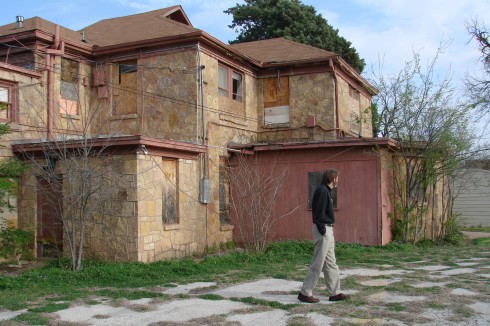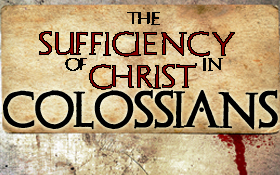God has been doing some amazing things in the past few weeks! To save myself the trouble of spelling it all out here, I’ve included the timeline that you have a link to below. Click on it for an outline of what I and a group of friends and fellow ministers been up to. Unfortunately, this bare bones outline (started after the fact, even) is all we’ve got so far when it comes to telling about what’s been happening, but it’s better than nothing. What you really need to do, though, is sit down with Josh Kirby and have him narrate it. He’s an amazing storyteller!

Timeline
Now that you’ve had a chance to get the basic idea of what we’ve been up to, here’s a chance to orient yourself a bit to the facilities we’re currently looking at and praying about. Here are some photos that I’ve taken around St. Ann’s. And click on the link or the photo below of St. Ann’s (and the illustrious Kent Smith) to watch the ten-minute “Sights and Sounds” video that I put together for Dr. Johnson’s Contexts of Ministry class.

Of course, as you can tell, this endeavor is still in its beginning stages. God has given us a dream, a dream which we believe is God’s dream for this group, for this building, and especially for this community. It’s a dream of restoration of people and things to their intended beauty and function. It’s a dream of holy and purposeful covenant community. It’s a dream of community development, not just in economic resources but in relationships. It’s a dream of reminding people that they are allowed to dream. It’s a dream of reconciliation, a dream of wholeness and unity, a dream of harmony, peace, and joy. It’s a big dream. But that’s why it’s important to us to remember that it’s God’s dream, not our own. And God’s definitely been the one in charge of leading us this far. We take no credit for that ourselves. In fact, we know that, more often than not, we’re struggling just to stay caught up and not get in the way of the awe-inspiring things that God is doing.
Again, it’s difficult for me to take something of such great beauty and attempt to analyze it, especially when it’s something that is so obviously not of my own doing. Still, even if I can’t take much of the credit myself, this whole adventure does demonstrate developing maturity in my identity as a minister. In fact, because it incorporates so many different aspects of my life, it seems to demonstrate some growth towards a great number of the expected outcomes of the MDiv program. Here I’ll talk just a bit about Outcomes 3ace, 4acd, 6abcfg, 8abcde, 9abcd, and 10abc.
One of the most immediate aspects of the dream for St. Ann’s is that of a covenantal monastic community of sorts. Our group hopes to renovate the two-story section of St. Ann’s first and live there under the rule of life that we are even now beginning to formulate. We are preparing ourselves through prayer, through individual and communal discernment, through relationship building, and in various other ways for the challenges and blessings that will come with living together in such an intense community. These kinds of practices which we’re involved in as a group now (and plan to continue to be involved in) are a demonstration of the Christian spiritual disciplines (8abcde), a challenge in developing Christian character (9abcd), and mutual collaboration to lead our group forward in discerning and following God’s call (6abcfg). The experience thus far has also been one which has confirmed and intensified my own clarity in my personal ministerial identity, allowing me to more fully explore my talents and desires in ministry and see how they line up with the mission which God has set before our group (10abc).
At the same time, we are not wanting this vision to be limited to just our group. We are planning to form strong, meaningful relationships with our neighbors from the College Heights community. One of our greatest desires is to live out the gospel among our newfound friends in such a way that they will be attracted to our God. We are also greatly looking forward to the ways in which we will encounter God already at work among the people we meet, for God is surely there among them in powerful ways already! This vision that God has planted within us and that God is drawing us to is one in which the Christian faith and theology are in dialogue with this local cultural context, with each making the others stronger and more purposeful in the kingdom of God (3ace, 4acd).
I have been continually amazed over these past few weeks by what God has been doing. It is a blessing to be a part of this process and to humbly follow and take part in the process as God is at work to reach the world with the good news of redemption and restoration. Redemption and restoration. Of buildings. Of neighborhoods. Of people. Of relationships. Of community. Of families, both physical and spiritual. Of all people and all things towards God. All to the praise of God’s glorious grace!






 This experience has helped me jump the biggest hurdle of all: finding my own voice. And I’m not the only one who’s found my voice. Whether she wants it or not, so has the church. God grant that she may find the voices of many other daughters.
This experience has helped me jump the biggest hurdle of all: finding my own voice. And I’m not the only one who’s found my voice. Whether she wants it or not, so has the church. God grant that she may find the voices of many other daughters.





